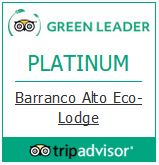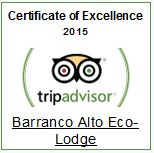History
Jorge Schweizer was 9 years old when he first visited the Rio Negro in 1946, on a fishing trip with his grandfather, Max Wirth. Leaving São Paulo state for Mato Grosso state (at that time, it was still a single state), the adventurers then travelled by bullock cart from the Rio Aquidauana to the Rio Negro where they set up camp for a week.
Jorge’s fascination with the Pantanal’s abundant and diverse fauna and flora was combined with his desire to understand the unknown, and in 1979, Jorge and his wife Evelyn made a dream come true by buying a piece of land from their friend Orlando Rondon, in the Nhecolândia region of the Pantanal beside the Rio Negro. They named this piece of land Fazenda Salina. During the 1980s, Jorge and Evelyn continued investing in surrounding properties, with the intention of acquiring a larger area which would incorporate all of the different microhabitats, thus preserving a more significant diversity of fauna and flora. In 1988, they bought Fazenda Barranco Alto, and in 1992, around the time of ECO 92, Jorge Schweizer launched his book “Ariranhas no Pantanal” (Giant Otters in the Pantanal). This work was based on his field research carried out over a period of 8 years along 46km of the Rio Negro. The word “Salina” serves as an abbreviation for the phrase “SAlve As LINdas Ariranhas” (“Save the beautiful giant otters”). Jorge’s fascination with this untamed nature would be passed on to all 4 of his children.
In 2003, Jorge and Evelyn Schweizer’s daughter, Marina Schweizer, and her husband, Lucas Leuzinger, came to live at Fazenda Barranco Alto to start up an ecotourism enterprise. As a biologist, Lucas recognizes the need to collect more scientific data about the ecology of this biome. Starting in 2006, partnerships with universities from several different countries have helped to improve local residents’ understanding (about this biome), whilst at the same time providing access for researchers interested in carrying out their fieldwork. Leticia and Ana Emilia, the daughters of Lucas and Marina, studied at Vale do Rio Negro School, and the community spirit was strengthened with local events such as Festa Junina (a celebration in honour of Saint John, which takes place in June) and Festa do Cavalo (a day in honour of horses, with music and competitions).
In 2007, the four children, in partnership with their parents, purchased an area of land on the southern side of the the Rio Negro, with different characteristics to the Nhecolândia region of the Pantanal. This region of the Pantanal is called Abobral, and the area, known as Santa Thomazia, is located across from Fazenda Barranco Alto, on the other side of the river.
Between 2017 and 2019, Fazenda Barranco Alto was managed by Jorge and Evelyn Schweizer’s youngest daughter, Corinne Schweizer. Corinne and her husband, Ben Griffiths, came with their two young children, Jack and Emilia, to live together with the caimans, the chaco chachalacas and the jabiru storks, immersing themselves in nature’s secrets.
Jorge and Evelyn Schweizer’s oldest daughter, Camilla Schweizer, is currently managing the lodge at Fazenda Barranco Alto, and their son, Noel Schweizer, is responsible for the animal husbandry department at the farm, completing the cycle of four children and their families all actively involved in the Pantanal’s development. The business, which works as a partnership, has a nature conservation philosophy accompanied by traditional, extensive animal husbandry at its core. Long-term research, local community support, encouraging education and a deeper understanding of the environment are our ideals.
Aside from the Schweizer family, there is also an excellent team of guides, drivers, cooks, cleaning ladies, cowboys (and their foreman), and a tractor driver. In the Pantanal, the human being alone is nothing in comparison to untamed nature. Only the coming together and the cooperation of a number of individuals can make dreams come true at Fazenda Barranco Alto.
Awards and certifications








